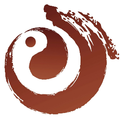
Introduction:
1. Characteristics of Yin Deficiency Constitution
2. Classification of Yin Deficiency Constitution
3. Dietary Regulation for Yin Deficiency Constitution
4. Daily Life and Work for Yin Deficiency Constitution
5. Health Preservation Adjustments for Yin Deficiency Constitution
1. Characteristics of Yin Deficiency Constitution
Yin deficiency constitution refers to a condition caused by congenital insufficiency, prolonged illness leading to blood loss, or excessive strain depleting Yin blood, such as when parents are weak during pregnancy, premature birth, or previous hemorrhagic diseases. This results in a deficiency of body fluids, essence, and blood, leading to a state where insufficient Yin cannot control Yang, resulting in dryness and heat.
How to determine Yin deficiency? In Traditional Chinese Medicine (TCM), it is primarily assessed through symptoms. There is a saying, “Yin deficiency leads to internal heat,” because when body fluids are insufficient, Yin cannot control fire, leading to symptoms such as heat in the palms and soles, afternoon tidal fever (a fever that comes in waves, starting in the afternoon), night sweats, flushed cheeks, dry skin, dry mouth and throat, a desire for cool water, yellow urine, and dry stools. Individuals with this constitution tend to be irritable and active.
2. Classification of Yin Deficiency Constitution
Heart Yin Deficiency. The heart houses the spirit, and here, the spirit primarily refers to mental activities. When Yin fluids are depleted, and blood fails to nourish the heart spirit or when empty fire rises, symptoms such as irritability, palpitations, insomnia with vivid dreams, or canker sores, tidal fever, and night sweats may occur.
Lung Yin Deficiency. Insufficient Lung Yin leads to internal heat, resulting in noticeable dry cough, dry throat, and hoarseness, or scanty and sticky phlegm, sometimes with blood.
Kidney Yin Deficiency. The kidneys govern growth, development, and reproduction. Individuals with Kidney Yin deficiency may experience symptoms such as lower back pain, dizziness, tinnitus, and insomnia. In women, this often manifests as reduced menstruation or even early menopause, while men may experience nocturnal emissions.
3. Dietary Regulation for Yin Deficiency Constitution
Dietary Principles
Consume more foods that nourish Yin, moisten dryness, and clear heat.
Both nourishing Yin and clearing heat should be emphasized.
Avoid spicy and heating foods.
Suitable Foods
Regularly consume foods that nourish Kidney Yin and are sweet and cooling, such as soft-shelled turtle, duck meat, turtle, sea cucumber, oysters, pig skin, white fungus, lotus seeds, lily bulbs, black sesame, milk, honey, pears, and water chestnuts. It is also beneficial to combine these with targeted Yin-nourishing medicinal dishes, such as lotus seed and lily bulb soup with lean meat, codonopsis and yuzhu old duck soup, and snow pear soup with white fungus and lily bulbs.
In summer, consume more foods that clear heat and generate fluids, such as watermelon, lotus seeds, and winter melon, and drink plenty of water to replenish fluids lost through sweating.
In winter, appropriate supplementation is recommended to prevent worsening of Yin deficiency from summer and autumn: consume more warming or neutral foods, such as donkey-hide gelatin, jujubes, hemp seeds, black sesame, and mulberries, or combine with warming foods to achieve the goal of nourishing Yin.
Foods to Avoid
Warm, dry, spicy, and rich foods can damage Yin and deplete fluids, such as ginger, garlic, cinnamon, chili, Sichuan pepper, and dog meat, and should be minimized or avoided. When cooking, prefer methods such as stewing, steaming, braising, or boiling, and keep meals light; avoid frequently eating stir-fried dishes cooked over high heat.
4. Daily Life and Work for Yin Deficiency Constitution
Exercise and Health. Individuals with Yin deficiency have insufficient body fluids, essence, and blood. High-intensity and high-volume exercise can deplete Yin fluids, exacerbating Yin deficiency. Therefore, avoid exercising in hot summer or humid environments; moderate-intensity exercises are suitable, such as Tai Chi and Ba Duan Jin.
Daily Life and Work. With Yin deficiency, Yang energy can easily become excessive. Therefore, individuals with Yin deficiency should ensure adequate sleep to better nourish Yin and calm the spirit; avoid overly stressful work and high-temperature environments; and practice moderation in sexual activity to preserve Yin and essence.
5. Health Preservation Adjustments for Yin Deficiency Constitution
Mental Regulation: The Huangdi Neijing states, “Stillness preserves the spirit, while agitation leads to its loss.” The spirit governs life activities, residing in the heart, where all things are perceived. Therefore, one often finds it difficult to remain calm. If Yin blood is deficient, the spirit can become overly agitated, disrupting the organs and further depleting Qi and blood, hastening aging. Thus, the key to nourishing the spirit lies in the principle of “stillness.”
Acupoint Regulation: Points such as Sanyinjiao (SP6), Xuehai (SP10), Zusanli (ST36), Taixi (KD3), Yinxu (KD6), Taichong (LR3), Neiguan (PC6), and Shenshu (BL23) can be selected for acupressure or acupuncture. Auricular acupuncture points may include liver, kidney, endocrine, and reproductive points. Before sleep, one can also massage the Yongquan (KD1) point on the foot with the Laogong (PC8) point on the palm. Laogong is a point on the pericardium meridian, associated with fire, while Yongquan is a point on the kidney meridian, associated with water. Massaging these points can promote the interaction between heart and kidney, guiding fire back to the source, thereby improving sleep.
References:
[1] Zhang Ying, Wang Fei, Luo Wenbin, Ren Qing, Liu Zhibin. Research on Health Preservation for Yin Deficiency Constitution [J]. Chinese Clinical Research, 2016, 02:260-261+265.
Source: Yunyi Xingyuan


